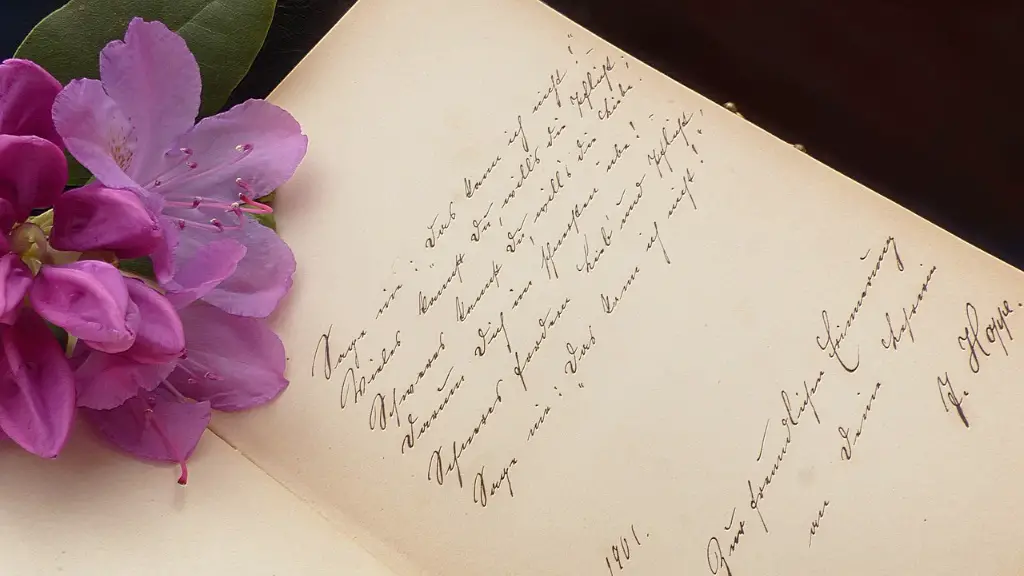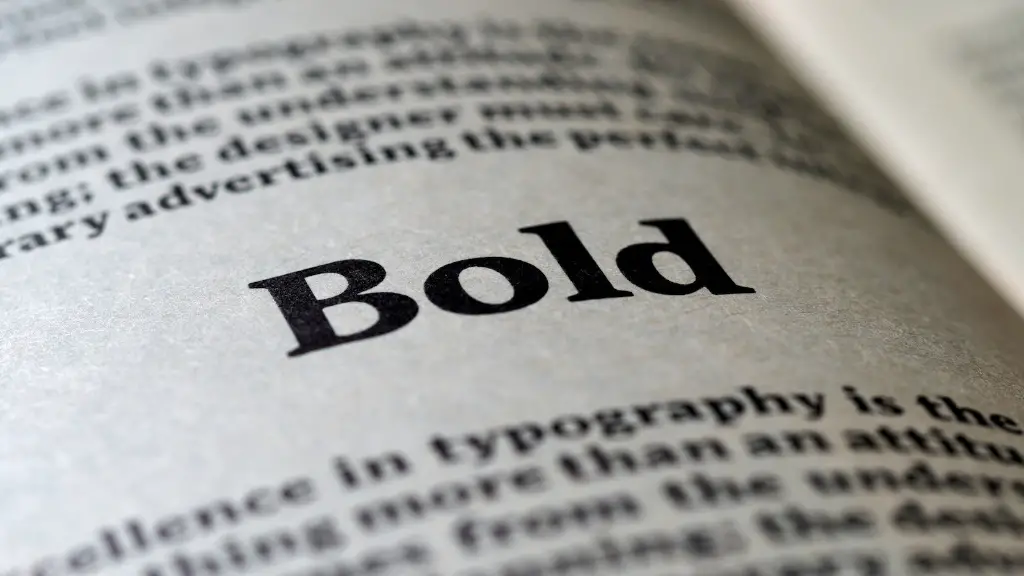What Does Irony Mean In Poetry
Irony carries a great deal of power when used in poetry. It has the ability to surprise and challenge us, as well as to make us think or feel a certain way.Irony is a literary device which authors can use to create certain dramatic effects or to make certain statements about the world and human nature. It can be used to create contrast between what we expect and what actually happens, or to voice an opinion about something.
Irony in poetry can be defined as the discrepancy between what is expected and what actually occurs. This contrast can be subtle or overt, depending on the poet’s intent. In some cases, it can be used as a form of satire, in which the poet is making a statement about the world. In other cases, it can be used to create a sense of foreboding or to add an interesting twist to the story.
Irony can take many different forms, from verbal irony, such as when a speaker says something opposite to what they mean, to situational irony, in which the result of an action is the opposite of what was intended. Irony is often used to create a feeling of suspense or to add tension to a situation. It can also be used to make a joke or to convey a sense of the unexpected.
Irony can be used to make a reader reconsider a situation or to think more deeply about a character’s motivations. It also has the power to make a statement about the human condition, such as the folly of our expectations or the inevitability of loss. Irony can be used to express both joy and sorrow, and to make a stronger impact on the reader than other forms of expression.
The power of irony in poetry lies in its ability to surprise and challenge us. It forces us to consider ideas that may be counterintuitive, or to think about a situation from a different perspective. It also conveys a wider message about the complexity of human relationships and how life is unpredictable and can take unexpected turns.
Irony can affect how we perceive a poem and how we interpret it. By adding a twist or an unexpected element, the poet can make a profound point about the world and about human nature. It can also function as a form of commentary, revealing how the poet views certain aspects of our lives and the larger world. In this way, irony can be both entertaining and thought-provoking.
The Role of Tone in Irony
The tone of a poem can also play a role in conveying ironic situations. While irony is often used to convey a sense of tension and suspense, it can also be used to achieve a sense of humour or to convey a message of hope. The tone of a poem is therefore important in conveying a particular emotion or point of view.
A poet can also use irony to convey a message of ambiguity. By allowing the reader to interpret the poem in different ways, irony can create a sense of mystery and can be used to invoke deeper thinking. Irony can be used to create emotional distance and to encourage readers to develop their own interpretations of a poem.
The Use of Irony in Metaphor
Irony can also be used in metaphors to create meaning. A metaphor is a figure of speech in which two different things are compared to each other in order to create a vivid image. Irony can be used in metaphors to convey a more thought-provoking message or to introduce a twist. For example, a poem could compare a character to a tree, with the ironic twist being that despite its outward appearance, the tree has a hidden meaning or significance.
Irony can also be used to create a feeling of tension and suspense. When used in a metaphor, irony can be used to tell a deeper story or to make a statement about human nature. Irony can be used to provide a subtle hint of the unexpected or to surprise the reader with an unexpected meaning or message.
The Function of Irony as Poetic Device
Irony is a powerful poetic device and can be used to convey a range of themes and ideas. It can be used to emphasize a certain point or to create an interesting twist in a story. Irony can be used to introduce a sense of suspense or to create a feeling of ambiguity.
Irony can also be used to make a statement about life, or to express a particular opinion. It can be used to reveal an underlying truth or to provide an alternate perspective on a situation. In this way, irony can be used to add a sense of complexity and depth to a poem.
Examples of Irony in Poetry
Irony can be seen in a range of different types of poetry, from classical works such as John Donne’s “The Flea” to more contemporary works such as Robert Frost’s “Mending Wall”. In Donne’s poem, the speaker argues that the flea is an example of a union between himself and his lover, despite the fact that it is a parasite which feeds off of the host. In Frost’s poem, the narrator is referring to a wall that he and his neighbour build between their properties, which serves to separate them, even though it is meant to be a physical barrier to protect them.
Irony can also be found in works of dramatic poetry, such as William Shakespeare’s “Sonnet 129”, in which the speaker reflects on his own infidelities with a sense of self-loathing. In this poem, the speaker says that it is a wretched state of being, even though he has clearly enjoyed the act of sexual pleasure. By using irony in this way, the poet is highlighting the idea that pleasure can come at a cost.
The Significance of Irony in Poetry
Irony is a valuable tool for poets to use when expressing their ideas. It allows them to create an unexpected contrast between what is expected and what actually occurs, which can create a dramatic effect. By conveying a deeper message or a different perspective, irony can be used to convey a powerful statement about human nature or to explore the complexities of life.
Irony also creates a space for the reader to engage in further thought and contemplation. It allows us to explore ideas that may be counterintuitive or to develop our own interpretations of a poem. In this way, irony can be used to create an engaging and thought-provoking experience.
The Effect of Irony on the Reader
The effect of irony in poetry can be both subtle and powerful. It can create an element of surprise and can challenge our expectations. Irony can also be used to create ambiguity or to make a statement about human nature. By exploring the unexpected and by emphasizing complex ideas, irony can make a powerful impact on the reader.
Irony has the power to entertain, to challenge, to shock, or even to make us laugh. It is a versatile tool, which can be used to make a statement, to evoke emotion, or to offer an alternate perspective on a situation. It can cause us to reconsider a story or to think more deeply about a character’s motivations. By introducing a twist or an unexpected element, irony can be used to create an engaging and thought-provoking experience for the reader.
Irony In Psychological Poetry
Irony is an effective tool for psychological poets who are exploring questions about the human condition and the complexities of life. It can be used to convey a sense of irony at how life can take unexpected turns, or to expose the emptiness of our expectations. By introducing a twist or unexpected element, irony can create a sense of surprise and can encourage us to rethink our preconceived notions.
Irony is also a useful tool for poets who are exploring death and mortality. By exploring the Grim Reaper, the inevitability of death, or the futility of our attempts to ward off mortality, irony can be used to make a powerful statement about life and death.
Irony And The Subversion Of Expectations
Irony can also be used to subvert expectations and to challenge our preconceived notions. By introducing an unexpected twist or a point of view that is counter to what we expect, irony can be used to expose the folly of our expectations or to reveal an underlying truth.
Irony can also be used to express complex ideas in a more accessible way. By making a statement in a humorous fashion, irony can be used to get the audience to consider a concept or idea more deeply. It can also be used to evoke a strong emotional response and to make a point in a more memorable manner.
The Importance of Irony in Poetry
Irony is an essential tool for poets who are looking to make a powerful statement, to evoke emotion, or to explore complex ideas. By introducing an unexpected twist or an alternate perspective, irony can create surprise and can force us to rethink our preconceived notions. It can also be used to make a statement about human nature, to expose the folly of our expectations, or to introduce a sense of ambiguity. In this way, irony can be used to create an engaging and thought-provoking experience for the reader.


